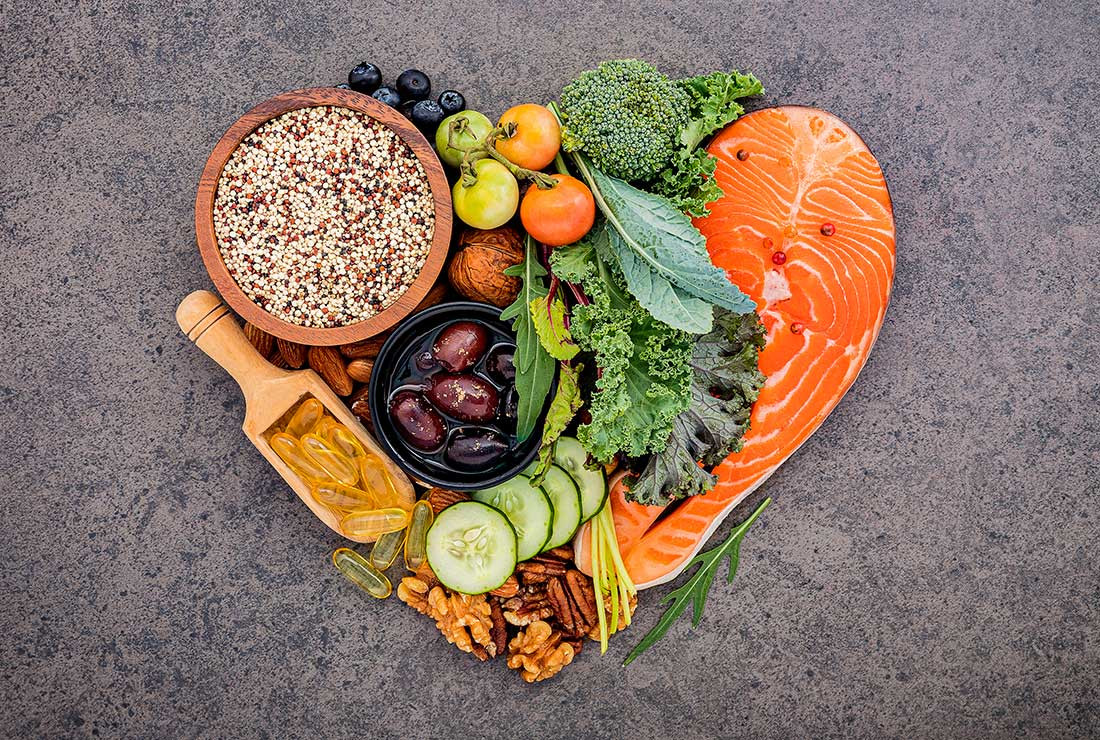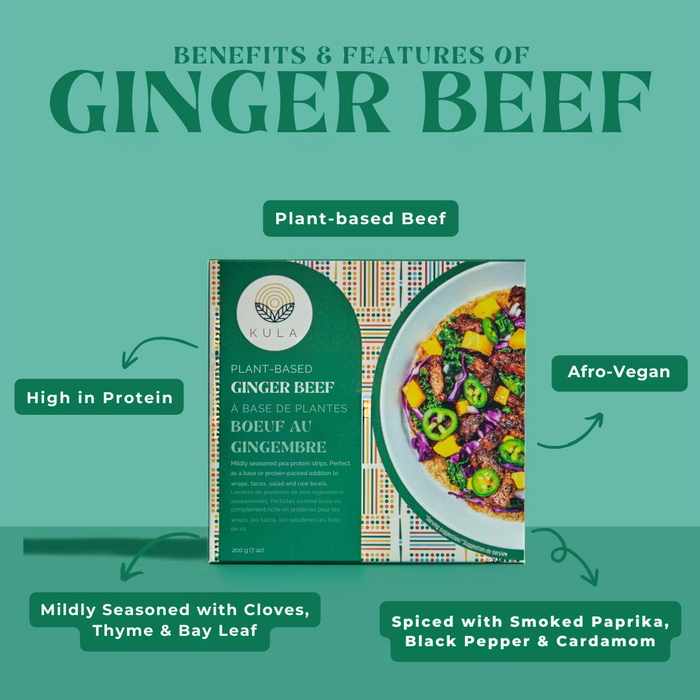Plant Based Beef vs. Traditional Meat: Which Is Better for the Environment?
Plant Based Beef vs. Traditional Meat: Which Is Better for the Environment?
Blog Article
Everything About Healthy Food: Advantages of Checking Out Plant Based Options
The conversation bordering plant-based diet regimens has gained substantial focus over the last few years. Several people are checking out the possible health and wellness advantages, dietary advantages, and ecological effects connected with these dietary choices. As people come to be much more conscious of their food's influence on health and sustainability, concerns occur regarding the usefulness of embracing such a way of living. What specific modifications can one anticipate, and just how might these selections improve not only personal wellness however likewise the planet's future?
Comprehending Plant-Based Diet Regimens
Many individuals link plant-based diets generally with vegetarianism or veganism, these diet plans can encompass a vast array of consuming patterns that prioritize whole, minimally processed plant foods. Such diet regimens usually consist of fruits, vegetables, entire grains, seeds, nuts, and beans, while restricting or eliminating animal products. This adaptability enables people to customize their nutritional choices according to individual choices and dietary requirements. Some might take on a mostly plant-based diet while still periodically consuming meat or milk, often described as a flexitarian approach. The focus continues to be on incorporating even more plant foods, which can lead to a varied array of meals and flavors. Understanding these various interpretations of plant-based eating is important for valuing its ease of access and appeal in contemporary food society.
Health Conveniences of Plant-Based Foods
The health benefits of plant-based foods are substantial, offering a nutrient density benefit that sustains overall health. Research study indicates that these foods can enhance heart wellness and play an important function in reliable weight management. By including more plant-based options, individuals might boost their nutritional selections and promote lasting wellness.
Nutrient Density Benefit
Nutrient density plays a crucial function in the health and wellness advantages of plant-based foods, making them a compelling option for those looking for a balanced diet plan. Plant-based foods, such as fruits, vegetables, beans, nuts, and entire grains, are typically rich in necessary vitamins, minerals, and anti-oxidants while being reduced in calories. This high nutrient density allows individuals to take in less calories while still satisfying their dietary needs. Furthermore, these foods are loaded with dietary fiber, promoting gastrointestinal health and aiding in weight administration. By incorporating nutrient-dense plant-based choices, customers can boost their general health and wellness, sustain their body immune systems, and reduce the threat of persistent illness. Eventually, the nutrient density of plant-based foods highlights their relevance in a health-conscious way of living.
Heart Health And Wellness Renovation

Weight Monitoring Assistance
In enhancement to advertising heart health, a plant-based diet regimen can significantly aid in weight administration. This nutritional approach emphasizes whole foods such as fruits, vegetables, legumes, nuts, and whole grains, which are usually lower in calories and greater in fiber contrasted to animal-based products. The high fiber web content helps increase satiety, minimizing total calorie intake. Plant-based diet plans are usually abundant in essential nutrients while reduced in unhealthy fats, making it less complicated to preserve a healthy and balanced weight. Research study shows that people who embrace a plant-based lifestyle often tend to have reduced body mass indexes (BMIs) and experience more effective weight management compared to those that consume meat-heavy diets. Welcoming plant-based alternatives is a calculated option for effective weight monitoring.
Nutritional Value of Plant-Based Ingredients
Plant-based components are rich in crucial nutrients, providing a varied range of vitamins, minerals, and anti-oxidants that add to general health and wellness. A contrast of healthy protein resources discloses that while animal items are typically deemed remarkable, numerous plant-based options give ample protein and other useful compounds. Recognizing the dietary value of these ingredients can assist individuals make notified nutritional selections.
Crucial Nutrients in Plants
Nutrient-rich components found in plants use a diverse variety of essential vitamins and minerals that contribute considerably to overall health and wellness. These components are rich in vitamins A, C, and K, which support immune function, vision, and blood clotting, specifically. In enhancement, plants offer important minerals such as magnesium, potassium, and calcium, crucial for heart wellness, muscle mass function, and bone toughness. The presence of fiber in plant-based foods aids food digestion and promotes a healthy and balanced intestine microbiome. Antioxidants, found perfectly in vegetables and fruits, help fight oxidative tension and minimize inflammation. Furthermore, many plant foods are low in calories yet high in nutrients, making them an exceptional selection for those looking for to keep a healthy weight while guaranteeing excellent nutrient consumption.
Contrasting Protein Sources
Healthy protein resources differ considerably in their dietary profiles, with plant-based components using unique address advantages. Unlike animal proteins, which typically include saturated fats and cholesterol, plant proteins often tend to be lower in these unhealthy elements. Legumes, nuts, seeds, and whole grains are abundant in vital amino acids, fiber, vitamins, and minerals. Lentils offer high healthy protein material together with substantial iron and folate, while quinoa is a complete protein, offering all nine important amino acids. Additionally, plant-based healthy proteins are frequently accompanied by antioxidants and phytochemicals that sustain general wellness. The change to plant-based healthy protein sources not just improves nutritional intake but likewise lines up with lasting dietary methods, decreasing environmental influence and promoting long-term wellness benefits.
Environmental Effect of Plant-Based Eating
As understanding of climate change expands, lots of people are discovering sustainable nutritional options that can substantially minimize their environmental impact. Plant-based consuming has actually become a substantial contributor to decreasing greenhouse gas discharges, which are mostly linked with animals production. The growing of fruits, vegetables, grains, and veggies commonly calls for fewer sources, such as water and land, compared to pet farming. Furthermore, plant-based diet regimens can lead to reduced deforestation, as much less land is required for grazing livestock or growing pet feed. By changing in the direction of plant-based options, consumers can sustain visit the website biodiversity and advertise healthier communities. Generally, accepting plant-based eating not only advantages individual wellness yet likewise stands for a crucial step towards ecological sustainability and conservation initiatives.
Conquering Common Misconceptions
While lots of people recognize the benefits of a plant-based diet, several misconceptions usually deter them from completely accepting this way of living. A typical idea is that plant-based diet regimens do not have enough protein; however, many plant resources, such as vegetables, nuts, and tofu, provide ample protein. Furthermore, some assume that this diet plan is expensive, when in fact, staples like beans, rice, and seasonal vegetables can be rather cost effective. An additional false impression is that plant-based eating is overly limiting, whereas it really supplies a diverse variety of foods and tastes. Finally, lots of stress that a plant-based diet might cause shortages, yet with correct planning, individuals can get all necessary nutrients, including minerals and vitamins, while taking pleasure in a variety of delicious meals.
Tips for Transitioning to a Plant-Based Way of living
Making the shift to a plant-based lifestyle can be an enriching experience, though it commonly needs some support to browse the preliminary modifications. Initially, people are encouraged to start progressively, including even more fruits, veggies, legumes, and whole grains right into their dishes while decreasing meat and milk intake. Meal preparation is important; preparing a regular food selection can help reduce the adjustment and protect against last-minute unhealthy choices. Exploring brand-new dishes and cooking approaches can likewise boost the experience and preserve excitement regarding plant-based eating. In addition, joining assistance teams or communities can give inspiration and share valuable suggestions. Remaining informed about nutrition guarantees well balanced meals, protecting against shortages while promoting a healthy, gratifying plant-based way of living.

Delicious Plant-Based Dish Concepts
Checking out tasty plant-based dish concepts can inspire people to accept an extra nutritious diet plan. One prominent option is a hearty quinoa salad, including cherry tomatoes, cucumber, and a tangy lemon-tahini clothing. One more favorite is a full-flavored lentil stew, loaded with carrots, celery, and great smelling natural herbs, excellent for a comforting dinner. For morning meal, over night oats made with almond milk, chia seeds, and covered with fresh berries provide a healthy beginning to the day. In addition, a lively vegetable stir-fry with tofu and a range of vibrant veggies can be a fast yet pleasing meal. Ultimately, creamy avocado salute on whole-grain bread, sprinkled with seeds and spices, offers a straightforward yet delicious treat. These meals display the variety and richness of plant-based eating.

Often Asked Inquiries
Can a Plant-Based Diet Offer Enough Healthy Protein?
The question of whether a plant-based diet regimen can supply sufficient protein prevails. Various sources, including beans, nuts, seeds, and entire grains, can meet protein needs effectively, sustaining a balanced and nourishing diet regimen for individuals.
Are Plant-Based Diet Plans Ideal for Kid?
The viability of plant-based diets for kids depends on cautious planning. Adequate nutrients must be assured, consisting of minerals, proteins, and vitamins. With appropriate guidance, such diet regimens can support healthy growth and development in youngsters.
Just how Do I Dine Out on a Plant-Based Diet plan?
Eating in restaurants on a plant-based diet regimen includes looking for restaurants with varied menus, requesting alterations, and exploring vegan-friendly alternatives. Preparation in advance and connecting nutritional preferences can boost the dining experience while maintaining dietary choices.
What Prevail Irritants in Plant-Based Foods?
Common allergens in plant-based foods include soy, gluten, nuts, and seeds - Gluten Free BBQ Sauce. Individuals adhering to a plant-based diet plan needs to be conscious of these allergens and check out tags carefully to stay clear of adverse responses and ensure safe intake
Can Plant-Based Diets Aid With Weight-loss?
Research suggests that embracing a plant-based diet might promote weight loss due to its usually reduced calorie density and higher fiber content. This combination can improve satiety, assisting individuals manage their calorie consumption efficiently. Several individuals associate plant-based diet plans generally with vegetarianism or look these up veganism, these diet regimens can incorporate a broad array of eating patterns that focus on whole, minimally processed plant foods. Nutrient thickness plays a necessary function in the health advantages of plant-based foods, making them an engaging choice for those looking for a balanced diet plan. Plant-based diet regimens have been revealed to noticeably enhance heart wellness, as they often contain elements that support cardio feature. In enhancement to promoting heart wellness, a plant-based diet regimen can substantially assist in weight monitoring. A common idea is that plant-based diet regimens do not have enough protein; nevertheless, various plant sources, such as beans, nuts, and tofu, offer adequate protein.
Report this page